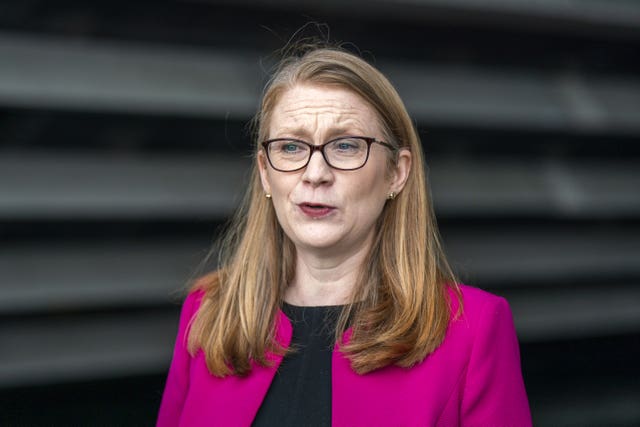World
Next UK government must be bold to tackle child poverty, urges Scottish minister

Scotland’s Social Justice Secretary has urged the next UK government to “be bold” in tackling child poverty, starting with increasing the country’s capital budget to boost housing.
Addressing MSPs as the Scottish Government published its annual child poverty action report, Shirley-Anne Somerville pushed for an increase in the capital block grant, which is forecast to fall by 9% in the coming years.
The Scottish Government credited falling capital cash for a near-£200 million cut to its housing budget.
Ms Somerville said to eradicate child poverty – First Minister John Swinney’s defining mission – change must come at Westminster.
“The reality is that every progressive measure put in place in Scotland simply cannot go on being cancelled out by punitive Westminster welfare policies,” she said.
“We need the next UK government, of whatever colour, to reset relations on welfare, to be bold and to take early action to match Scotland’s ambition.
“This includes key changes to welfare policies, such as the introduction of an essentials guarantee and the abolition of the two-child limit, which could lift an estimated 40,000 children out of poverty overnight.”
In 2017, the Child Poverty (Scotland) Act was passed, setting statutory targets to reduce relative poverty to 18%, absolute poverty to 14% and relative and material deprivation by 8% by the end of the 2023-24 financial year, on the road to further reductions by 2030.
But as of figures published earlier this year for the 2022-23 financial year, all three measures have risen slightly compared to the 2016-17 figure; relative poverty to 26%, absolute poverty to 23% and material deprivation to 11% – although the figures are believed to be “broadly stable”, Ms Somerville said.
The most recent statistics, she added, do not capture the expansion of the Scottish child payment – the Scottish Government’s flagship anti-child poverty benefit – to £25 per child per week.
“When looking at single-year estimates for 2022-23, data shows an increase in relative poverty, absolute poverty, and low income and material deprivation,” the report said.
“However, the recent increase is small and should be viewed cautiously.
“This is because we need repeated data to confirm a trend is established. Taking this approach, and looking at the three-year averages, our assessment is that child poverty rates are broadly stable.
“This lack of progress towards lower poverty rates needs to be understood in the wider context of recent years.
“Scotland has been facing significant economic and societal changes, with research highlighting the impact of the Covid-19 pandemic, economic impacts of the war in Ukraine, and the cost-of-living crisis.
“All of these have an impact on wider society but will be most significant for low income families who have less resources available to face crises.
“Despite these difficult circumstances, analysis suggests that our policy package is helping families.”

Final figures on the interim targets will be released next year, with the report claiming forecast poverty levels are likely “to be around the level of the interim targets for relative and absolute poverty”.
Of the 108 aspects of the strategy, 60 are complete or delivering at scale, the Social Justice Secretary added, while 34 are in progress and nine are in the early stages.
Four of the plans were considered to be aligned to another action, while one – the publication of a new youth work strategy – was paused as a result of a review into community learning and development, with recommendations from the review expected this month.
Scottish Conservative MSP Miles Briggs said he was “disappointed” the minister’s statement did not take account of the numbers of children in temporary accommodation.
Figures released earlier this year showed nearly 10,000 children were living in temporary accommodation in September last year.
“This is a national scandal and one which ministers are failing to see any progress on,” he said.
Responding, the minister pointed to cuts to the Scottish Government’s budget.





